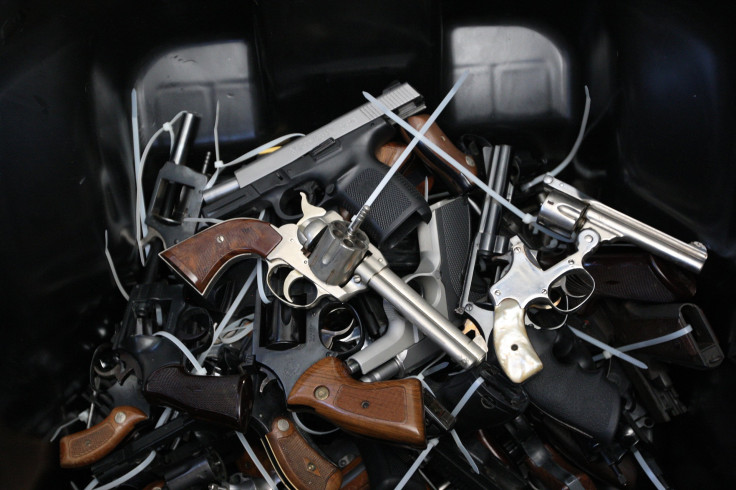Second Amendment Text And Meaning: What The Constitution Says About Guns

President Barack Obama has repeatedly expressed his support for the Second Amendment to the Constitution, even as he's advocated for more gun control. But dozens of Republican politicians have disagreed with his interpretation, raising the questions: What does the Second Amendment actually say? And what does it mean?
The first answer is easy. The amendment, which was adopted Dec. 15, 1791, reads: "A well regulated Militia, being necessary to the security of a free State, the right of the people to keep and bear Arms, shall not be infringed." But what it means is a little more complicated. Even the Library of Congress notes on its website that "the meaning of this sentence is not self-evident."
In the time after the Revolutionary War, new Americans feared their defense mechanisms were insufficient. They decided to allow the federal government the authority to rule the militia. It was immediately controversial, though eventually "accepted because of widespread agreement that the federal government should not have the power to infringe the right of the people to keep and bear arms, any more than it should have the power to abridge the freedom of speech or prohibit the free exercise of religion," according to the Constitution Center.
The Supreme Court became involved more than 100 years later. In 1875 and 1886, the court ruled that the Second Amendment didn't limit people, just the state and federal government. In 1939, the justices decided that unregistered, sawed-off shotguns weren't protected under the rule. Most recently, the Supreme Court found in 2008 that the capital couldn't ban handguns because the Constitution doesn't allow "the absolute prohibition of handguns held and used for self-defense in the home."
However, Justice Antonin Scalia went on to note that the Second Amendment had its limits. "Nothing in our opinion should be taken to cast doubt on longstanding prohibitions on the possession of firearms by felons and the mentally ill, or laws forbidding the carrying of firearms in sensitive places such as schools and government buildings, or laws imposing conditions and qualifications on the commercial sale of arms," he wrote, according to the New York Times.
Since then -- and even today -- what the Second Amendment says depends on who you're talking to.
No matter what President Obama says, his word does not trump the Second Amendment. https://t.co/C3UpiNiDop #2a
— Paul Ryan (@SpeakerRyan) January 5, 2016.@POTUS is right: We can protect the Second Amendment while protecting our families and communities from gun violence. And we have to.
— Hillary Clinton (@HillaryClinton) January 5, 2016© Copyright IBTimes 2025. All rights reserved.






















